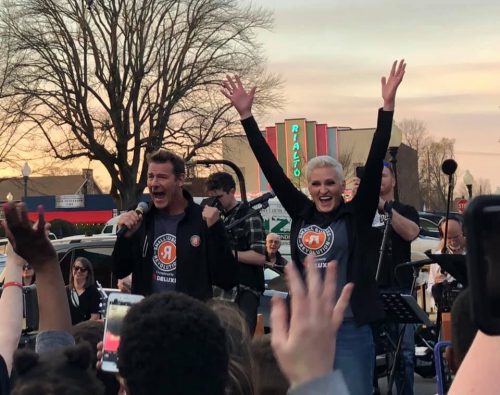You are likely aware that Searcy rallied to win a national vote to be featured in eight episodes of the hit online show Small Business Revolution co-starring Ty Pennington and Amanda Brinkman. The show’s premise is to help revitalize a town’s Main Street by conducting make-overs for six local small businesses. Deluxe Corporation utilizes the television show platform to market their small business services, which is an example of content marketing at its finest.
The show championed small business owners and the common challenges that most entrepreneurs deal with. Amanda Brinkman, the brainchild behind Small Business Revolution and Deluxe’s chief brand and communications officer, emphasizes how most entrepreneurs start a business because they are skilled at what they “do” but may not be a specialist at wearing all the hats — such as marketing, human resources, legal document drafting, and accounting — needed to run a small business successfully.
Entrepreneurs tend to survive in a steady state of nervous energy: pursuing new sales, retaining employees, juggling costs of benefits versus profitability, upholding quality, maintaining the facility, creating social content, carving out family time, eyeing the competition and keeping up with technology.
So, it is safe to say the first step in creating a conducive entrepreneurial environment is affirmation and encouragement. Entrepreneurs are heroes. They are the backbone of this country and vital to the sustainability and uniqueness of our communities. Owning a business is hard and it can consume most of your mental, physical and emotional energy. It is risky and many business owners leverage personal assets as collateral to get their baby off the ground. The fact that they are doing it (or thinking about doing it) exemplifies a courageous spirit, ingenuity and adaptability.
Encouragement is powerful. Community leaders need to publicly champion entrepreneurs, setting a tone of appreciation and validation. This should be a consistent message that resonates across all community organizations and reinforces that the community is behind those who decide to take the leap. It also cultivates an atmosphere of shared experiences, allowing entrepreneurs to know they are not alone and there are many who empathize with what they deal with on a daily basis.


Beyond competitors transitioning to supportive cheerleaders is the initiation of information-sharing groups. Commonly, this comes by the way of Chamber economic development programs. However, communities who are heading in the right direction will also see more grassroots efforts where business owners begin taking it upon themselves to be proactive. For example, an all-women entrepreneurship group recently formed and began meeting monthly at various locations. It is an open forum for women entrepreneurs, facilitated by volunteers and is centered around information-sharing. These organic, less formal groups represent a healthy entrepreneurial community where citizens are taking the time, effort and initiative to better themselves and others.
Originally written for the Harding University Waldron Center for Entrepreneurship & Family Business blog on January 27, 2020.

